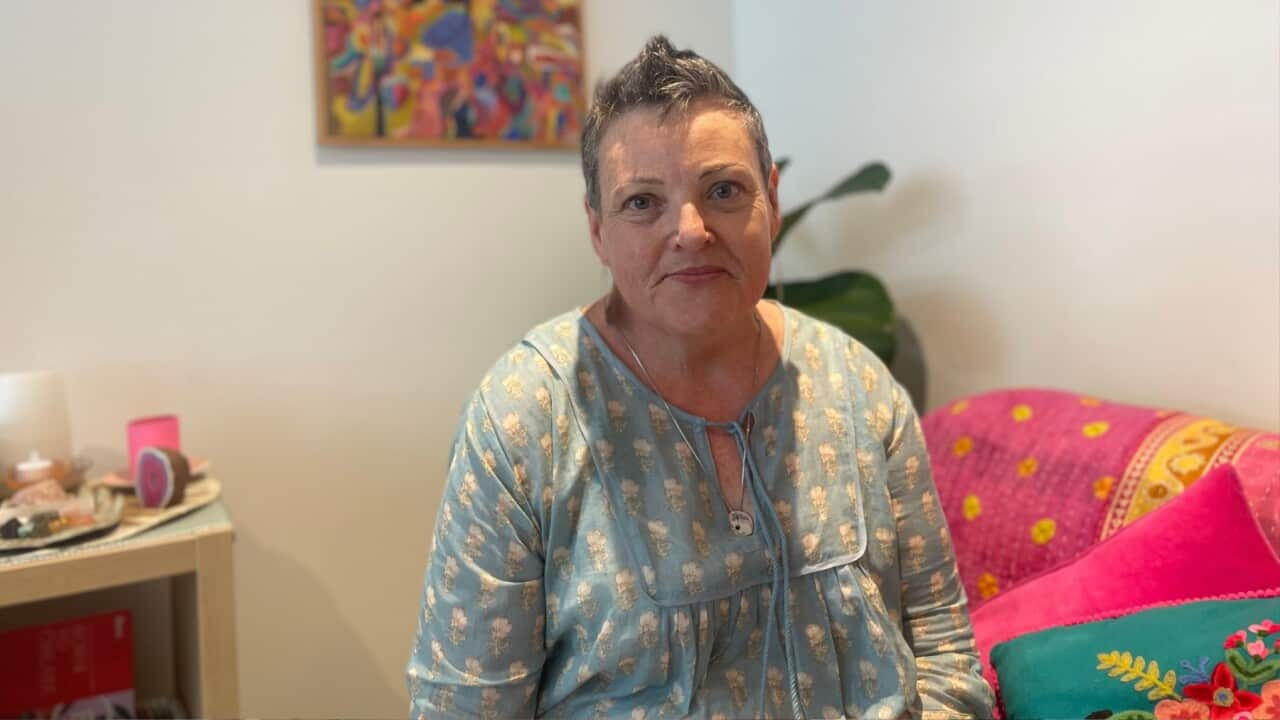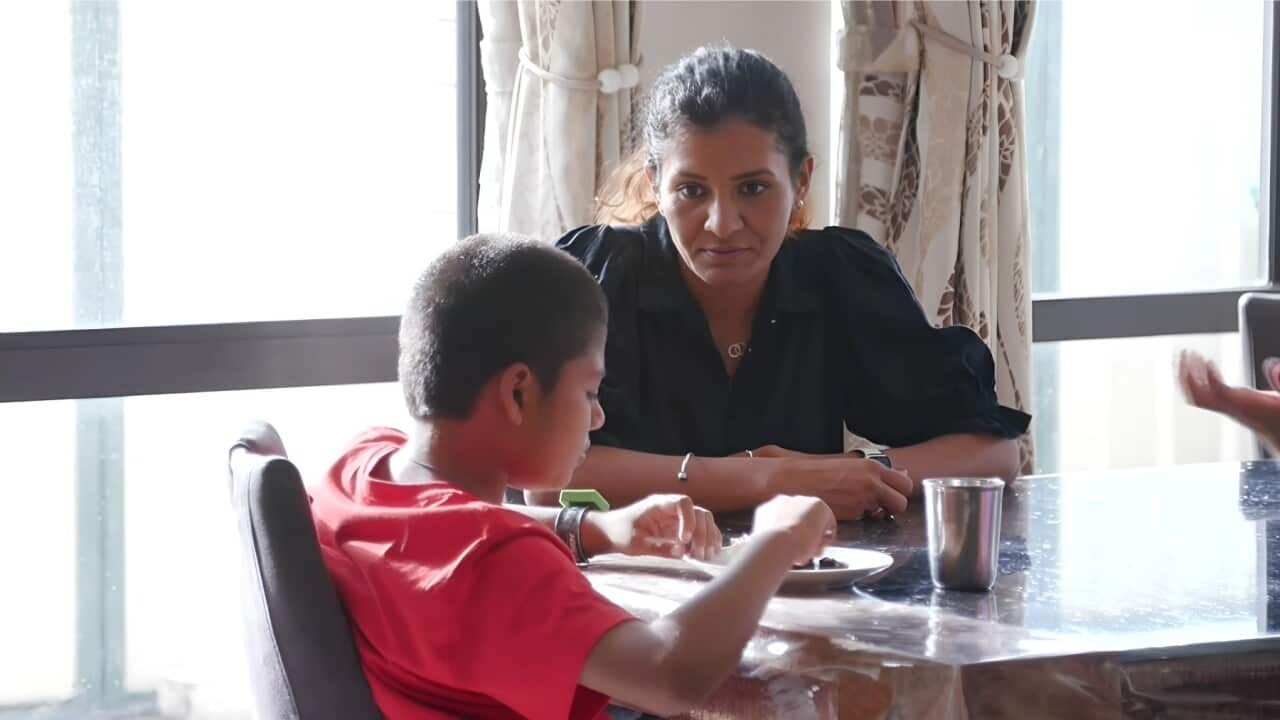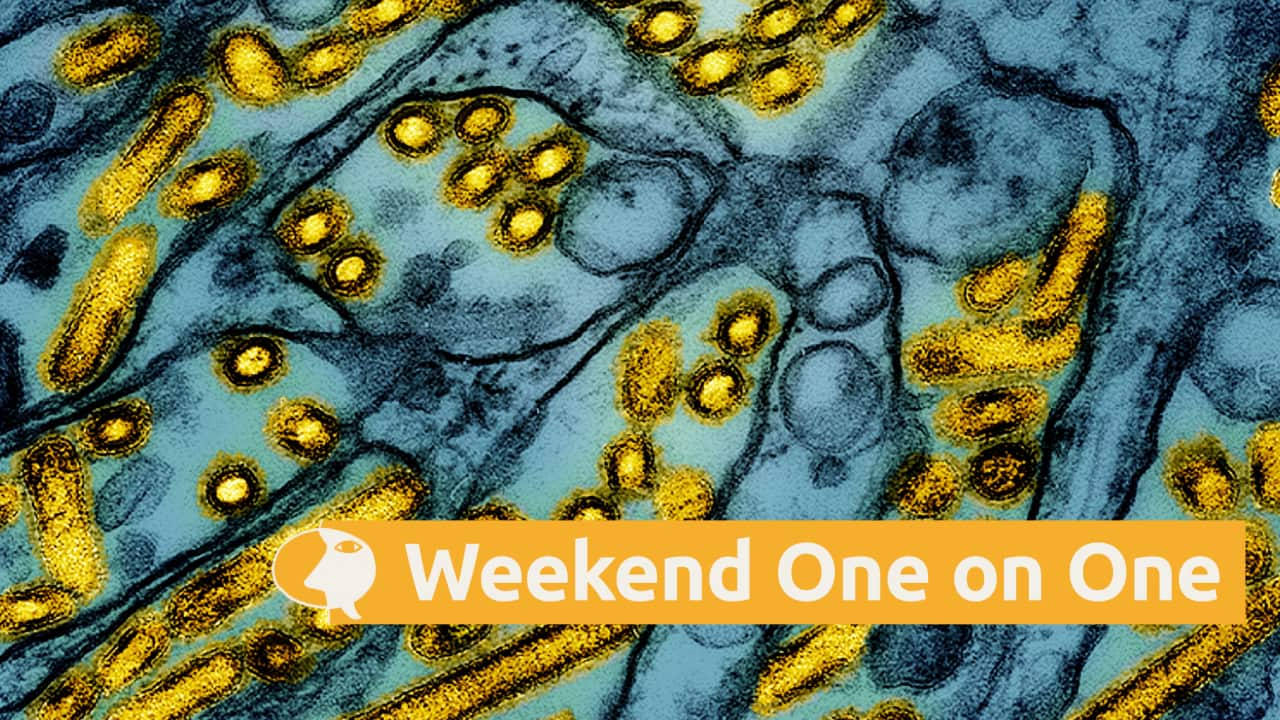TRANSCRIPT
50-year-old Deb Fryers has fond memories of the life she lived as a film producer in Melbourne.
“Going from, working all my life in a very fast-paced industry that I loved, travelling around the world, getting my first mortgage, a great love life, animals, friends, to actually there's nothing here anymore.”
After visiting the doctor with symptoms she thought were related to the flu, Deb was diagnosed with primary myelofibrosis in 2019.
It's a form of blood cancer which causes extensive scarring of the bone marrow, leading to low platelet production and increased risk of bleeding.
Deb told SBS News, the effects of her condition have been crippling.
“I’ve had to learn what bandages work and what bandages don’t work, otherwise I tear my skin. I get itchy when it's cold, when it's hot, when I've eaten something I'm not quite sure of. Itchiness, night sweats, fatigue, brain fog, my eyesight’s affected, something people don’t often talk about is my whole womanhood is gone."
A side effect of Deb's treatment is anaemia, which causes constant fatigue.
She says she can't make plans, and despite her thirst for travel, she's mostly limited to Melbourne's west, living in a social housing apartment with her 9-year-old support dog, Bill.
“My death journey is completely fine, spiritually, whole-heartedly, completely fine. It's the living I find the hardest, because it's this]
Professor Andrew Perkins from Melbourne's Alfred Hospital says it's common that patients become anaemic.
But he says a new drug, approved by the Therapeutic Goods Administration in December, is giving hope to patients like Deb.
"It has similarities to the currently approved drug Ruxolitinib that patients listening to this may already be on. But Ruxolitinib tends to exacerbate anaemia whereas momelitinib has an additional mode of action that either prevents or reverses in some cases the anemia. So it has the benefits of the Ruxolitinib in controlling the disease, but in addition, avoids the anaemia issue."
Momelotinib is the culmination of 30 years of research by Melbourne scientists Andrew Wilks and Chris Burns.
Their invention earned them the Prime Minister's Prize for Innovation last year.
Professor Wilks says the TGA approval feels like his invention is coming home.
"This is such an Australian story from the very start all the way through to the discovery and invention arc, and the idea that patients like Deb and others who will benefit enormously from taking this molecule, that's such a gratifying and rewarding thing to hear and learn about."
Professor Wilks hopes the molecule won't just be useful for myelofibrosis, but a host of other inflammatory diseases as well.
While the TGA has approved the drug for use, it’s not yet listed on the Pharmaceutical Benefits Scheme.
A spokesperson for the TGA says "additional steps need to be completed... including negotiating listing arrangements with the sponsor, quality and availability checks, and consideration by Government.”
Still, Deb Fryers says the approval alone is reason for optimism.
“Really excited, yeah, very hopeful. It’s probably the first time in a long time that I have something in my disease to look forward to, that has potential to change me and my day and my outlook.”













